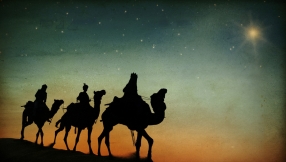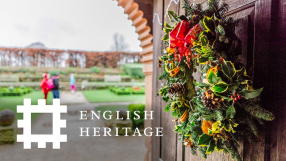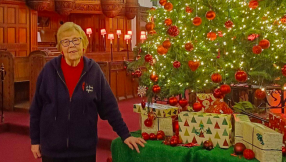Some people really enjoy their work. That Monday morning feeling, for them, is springing out of bed and bounding to work with joy and zeal. Others however find work just a drudge – something they have to do to pay the bills. It's Monday but Friday's coming.

After having dealt with sex, pleasure, food, entertainment and, as we saw last week, wisdom, Solomon now turns to this question of work (Ecclesiastes 2: 17-26). And it's clear that he's on the side of the 'It's Monday but Friday's coming' people. 'So I hated life, because the work that is done under the sun was grievous to me, all of it is meaningless, a chasing after the wind.'
He hates toil, the daily grind – one's daily responsibilities. We do all that work and what's the point of it? We can say that we are doing it for our family, but what if the person coming after us ruins all the good work we have done? A great example of this was Solomon's own son Rehoboam, who destroyed much of his father's work in building up the kingdom. Here again wisdom and folly come into play – you can work during your life with wisdom and end up leaving it all to a fool! So what is the point of wisdom?
It is little wonder that his heart 'began to despair' (verse 20). Despite wisdom, knowledge and skill there is no escaping death and there is no guaranteeing what comes after. So what does all this work and toil achieve? Sweet nothing. Nothing except pain and the sleepless nights caused by the frustration of knowing that it is all pointless. Solomon shows that existential angst existed long before Sartre and Camus discovered it.
So many of us can identify with the picture Solomon paints. You work hard, whether it's physical labour or mental exertion, and then at night when you are supposed to be recharging your batteries you are so stressed you cannot sleep. There is no escape from the daily grind. In the words of the great Swedish philosophers, Abba: 'I work all night, I work all day to pay the bills I have to pay – but still there never seems to be a single penny left for me. In my dreams I have a plan – if I got me a wealthy man...'
Or as the Canadian novelist Douglas Coupland puts it: 'As the expression goes, we spend our youth attaining wealth, and our wealth attaining youth.' We work hard when we are young in order to obtain money to help us look young when we are old!
Solomon's description is, 'under the sun' (ie without Christ), a realistic, sober and honest assessment of life. So let's eat, drink and be merry, for tomorrow we die. Is that it? Is there really nothing better and nothing more to life.?
In verses 24-26 there is a change. God is brought into the equation. As the Italian proverb states, 'He who leaves God out of his reckoning does not know how to count.' This is what happens when we do so. The Bible is not saying, forget all these things – it's not saying there is no life 'under the sun' or that it does not matter. Instead it provides us with the bigger picture and talks about the life of faith.
Life is to be enjoyed. We are actually meant to enjoy the simple things in life – eat, drink and enjoy our work. This is not the greed of the rich fool – (build bigger and bigger barns for retirement) nor the mundane, unreal and hopeless life of the unbeliever where as Ernst Becker observes, 'they tranquilize themselves with the trivial' to live 'normal' lives. It is not licentiousness nor cynicism – but contentment. The Christian learns to be content whatever the circumstances.
And of course this cannot take place without Christ. God gives wisdom, knowledge and joy to the person who pleases him. The contrast with the person who does not acknowledge God and who does not take his life from the hand of God is strong.
We are given the choice of two worldviews, of two kinds of life.
On the one hand secular pessimism leads to a vicious circle of a pointless world, temporary pleasures, fruitless work, futile wisdom, and inevitable death. On the other, life from the hand of God is, to borrow a phrase, life lived to the max. This is the God who gives us all things richly to enjoy, the One who along with Christ, graciously gives us all things that we need. 'Blessed are the meek, for they will inherit the earth' (Matthew 5:5). 'Sorrowful, yet always rejoicing; poor, yet making many rich; having nothing, and yet possessing everything' (2 Corinthians 6:10).
The contrast is seen in how that works out. Take the issue of sleep. The Christian can, like her Lord in the storm, lay down their head and rest. I love the story of Peter in jail (Acts 12:6). The night before Herod was to bring him to trial, Peter was sleeping between two soldiers, bound with two chains, and sentries stood guard at the entrance. Chained and imprisoned, about to be brought to trial for his life, and he sleeps like a baby. 'He gives his beloved sleep' (Psalm 127:2).
As for work, if you are a Christian then no matter how mundane or difficult the task may be, you have the joy of knowing that it is done for the Lord.'Therefore, my dear brothers, stand firm. Let nothing move you. Always give yourselves fully to the work of the Lord, because you know that your labour in the Lord is not in vain' (1 Corinthians 15:58).
I met an owner of a pub restaurant who told me of a Christian dishwasher she employed – who as a young man on a minimum wage nevertheless worked with such joy, honesty and vigour that she was compelled to ask him why. He explained that he loved Jesus and did it for him.
Instead of hating our work and hating life, of all people Christians are those who really can live life to the max. And none of it is pointless or meaningless with Christ. That should transform our work practices and environments this Monday morning! Get Christ. Get life.
David Robertson is Associate Director of Solas CPC in Dundee and minister at St Peter's Free Church. Follow him on Twitter @TheWeeFlea.













